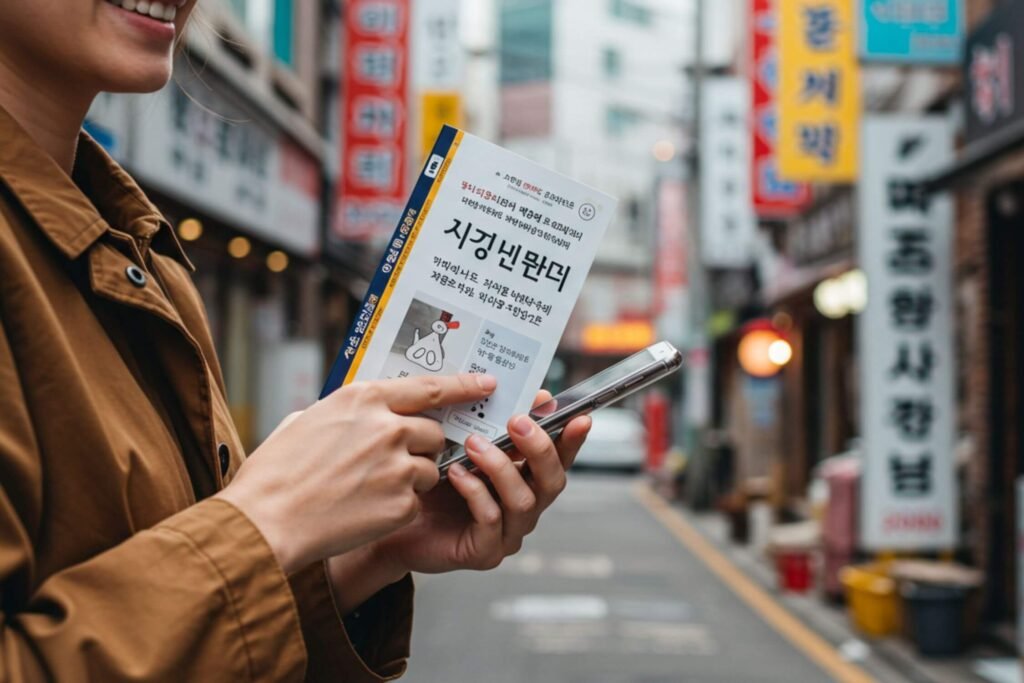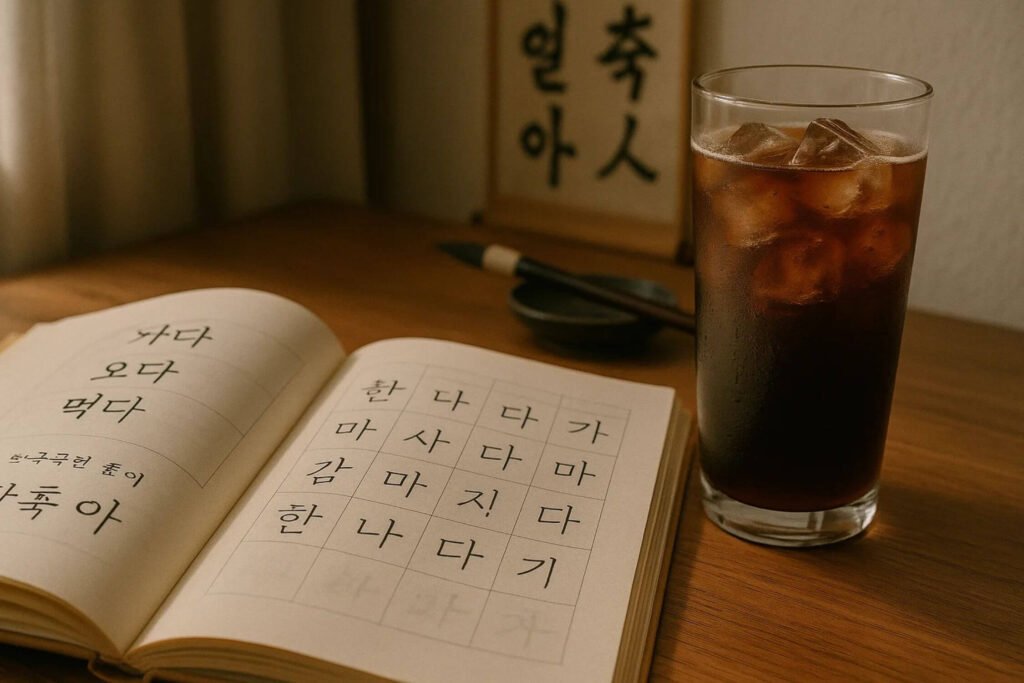Planning a trip to South Korea? Whether you’re heading to the bustling streets of Seoul, the historic palaces of Gyeongju, or the coastal beauty of Busan, a little Korean can go a long way. You don’t need to be fluent to get around, but learning just a few simple Korean phrases can drastically improve your travel experience. Locals appreciate the effort, and you’ll find that a smile and a well-placed “annyeonghaseyo” (hello) can open doors—literally and figuratively.
In this guide, we’ll walk you through 10 easy Korean phrases every traveler should learn. These phrases are not only practical but also fun to use. So grab a pen, or better yet, bookmark this page—your trip to Korea just got a whole lot smoother.
1. Annyeonghaseyo (Hello)
If you only learn one Korean word before your trip, make it annyeonghaseyo. This is the standard, polite way to say “hello” in Korean, and it’s appropriate in nearly every situation. Whether you’re entering a shop, greeting your tour guide, or saying hello to a stranger at a temple, this phrase is your best friend.
Pronounced an-nyeong-ha-se-yo, it’s formal and respectful—a must in Korean culture, which places a high value on politeness and hierarchy. Say it with a smile, and you’ll likely get one in return.
2. Kamsahamnida (Thank you)
The second most important phrase you should commit to memory is kamsahamnida, which means “thank you.” Pronounced kam-sa-ham-ni-da, this phrase is used in all sorts of everyday situations—from receiving your coffee at a café to thanking a local for helping you with directions.
Showing gratitude is important in any culture, and South Korea is no exception. Learning to say thank you in Korean shows you respect the culture and people you’re visiting. For a slightly more casual version, you might also hear “gomawo,” but stick to kamsahamnida to play it safe.
3. Juseyo (Please / I’d like…)
When ordering food or asking for something at a store, you’ll want to use the phrase juseyo, which translates to “please give me” or “I would like.” It’s extremely versatile. Just place the noun before it, and you’ve got a polite request.
For example, if you want a bottle of water, you could say “mul juseyo” (물 주세요). Want kimchi? Try “kimchi juseyo” (김치 주세요). It’s a polite and easy way to get what you need without being demanding.
4. Eolmaeyo? (How much is it?)
Shopping in South Korea is a delightful experience, from street markets to boutique stores. But knowing how to ask the price is essential. That’s where eolmaeyo? comes in handy. It means “how much is it?” and can be used to inquire about just about anything—from souvenirs to street food.
Pronounced ol-ma-ye-yo, this phrase shows vendors that you’re genuinely interested in their products and makes your interactions more engaging. Combine it with gestures or point to the item if pronunciation is tough.
5. Igeo juseyo (This one, please)
Sometimes pointing is easier than describing, especially when you don’t know the Korean word for what you want. In that case, use igeo juseyo, which means “this one, please.” It’s especially helpful in restaurants or markets where you can see the food or items on display.
Say ee-guh ju-se-yo while gesturing, and you’ll almost always be understood. This phrase pairs well with a smile and makes the buying process smooth and polite.
6. Hwajangsil eodi isseoyo? (Where is the bathroom?)
When nature calls, you’ll want to know this one. Hwajangsil eodi isseoyo? means “where is the bathroom?” and could easily be the most critical phrase on this list, depending on your situation.
Pronounced hwa-jang-sil uh-di i-sseo-yo, this phrase will save you in moments of urgency. While many public places in Korea have clean, accessible restrooms, they may not always be clearly marked in English. If you get stuck, just ask someone using this phrase and they’ll usually be happy to help.
7. Mollayo (I don’t know)
Sometimes the best thing to say is that you don’t know. Mollayo, pronounced mol-la-yo, is a handy phrase when someone asks you a question you don’t understand or you’re just completely lost.
It’s polite and clear, and Koreans will understand that you’re not being rude—you simply don’t understand what’s being asked. Pair it with a confused but friendly look, and they may even switch to English or try to help you in another way.
8. Hangukmal jal motahaeyo (I can’t speak Korean well)
One of the most useful phrases for foreign travelers is hangukmal jal motahaeyo, which translates to “I can’t speak Korean well.” This is a respectful and honest way to signal to locals that you might need a bit more patience or slower speech.
Say it like this: han-guk-mal jal mo-ta-hae-yo. Many Koreans, especially in tourist areas, speak at least some English. Using this phrase often leads to them trying to meet you halfway, and the conversation can still go smoothly.
9. Ye / Ne (Yes)
Saying yes is easy—just say ne or ye, both meaning “yes” in Korean. Though the two are often used interchangeably, ne is more common in everyday speech. Pronounced like neh, this short phrase will help you agree to things quickly.
Whether you’re confirming your order, accepting help, or just nodding along to a friendly suggestion, a simple “ne” goes a long way in conversation. It’s polite, short, and incredibly easy to remember.
10. Aniyo (No)
Just as important as yes is knowing how to say no. The Korean word aniyo is pronounced a-ni-yo and is used to politely decline or disagree. It’s formal, yet not harsh—perfect for travelers trying to be respectful in unfamiliar situations.
You might use it when declining a service, turning down food you’re allergic to, or gently refusing a sales offer at a market. Use it with a soft tone and maybe a small head shake, and you’ll still come across as polite.
Bottom line
South Korea is a fascinating blend of ancient culture and modern innovation. From the neon lights of Gangnam to the peaceful hanoks of Jeonju, every corner of this country offers something unique. But no matter where you go, speaking a bit of the local language will make your adventure smoother and more memorable.
So before you hop on that plane, take 10 minutes a day to practice these essential Korean travel phrases. They’re easy, practical, and can completely transform the way you experience Korea. Who knows? You might even come home with a newfound love for the language.



